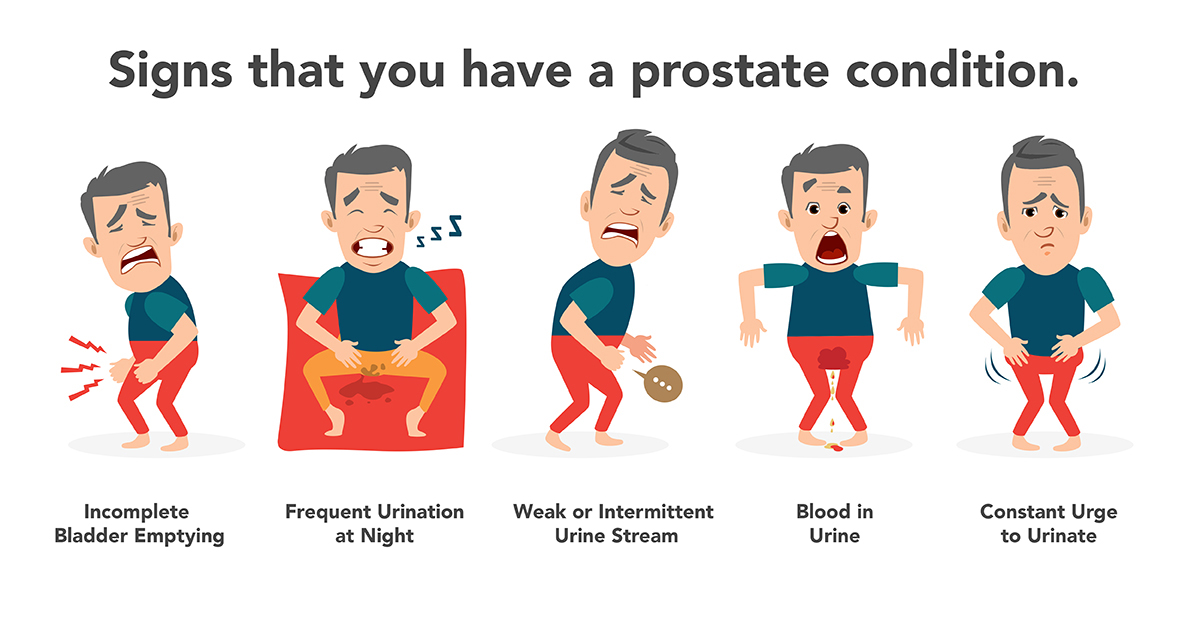
Prostate cancer is one of the top 3 common cancers among men. The disease occurs when cancer cells form in the prostate, a walnut-sized gland located between the penis and bladder. The prostate is part of the male reproductive system and is responsible for nourishing sperm. Prostate cancer in its early stages is usually localized, but it can spread to other organs if left untreated.
As like most cancers, it is difficult to detect prostate cancer in its early stages because it does not present any signs. Symptoms such as frequent, painful and weak urination only appear once the disease has progressed. It shares similar symptoms with Benign Prostate Hyperplasia (BPH), a non-cancerous enlargement of the prostate. Other prostate cancer symptoms include erectile dysfunction, painful ejaculation, lower back pain and blood in the urine or the semen.
Difficulty with urination or enlargement of the prostate is not usually a symptom of prostate cancer.
In most cases, lower urinary tract symptoms are due to a non-cancerous prostate condition called the Benign Prostate Hyperplasia. The condition is due to an overgrowth of prostate tissue that pushes against the urethra and the bladder, blocking the flow of urine. Having a BPH doesn’t mean a man is more or less likely to get prostate cancer. Learn more about BPH, the symptoms and treatment available.
Every day from 2014-2018[1], 15% of new cases for men were prostate cancer; more than 50% occurred among those aged 70 years and above. Most prostate cancers detected early are curable and placed on active surveillance. Hence the survival rate is over 85%, five years after diagnosis. In its early stages, it is usually localized with little to no symptoms. Learn more about the symptoms.
According to the Singapore Cancer Registry, 30.7% of male patients are diagnosed with Stage 4 prostate cancer in their first diagnosis. It usually mean that cancer cells have spread beyond the prostate to other organs in the body. Learn more about the available treatments.
 What are the symptoms of Prostate Cancer?
What are the symptoms of Prostate Cancer?Biopsy
A biopsy is done on any suspicious tumours or growths in the prostate for signs of cancer.
Blood Test
A complete blood count blood test will be done to check for white blood cell increase which could be a sign of cancer.
Digital Rectal Examination
A digital rectal examination is done to check the size of the prostate.
Imaging Tests
Imaging tests are done with ultrasound or CT scan to check the prostate for abnormalities, tumours or growths.
For more information on prostate cancer, consult a urologist or call (65) 6363 1818.
Alternatively, you could also send in an enquiry here.
Reference
[1] Singapore Cancer Registry 50th Anniversary Monograph (1968 – 2017), pp 215, 9.11 PROSTATE (ICD-10: C61)



Myth: Cancer is a death sentence
Fact: About one third of all cancers can be cured if they are detected and treated early. This is why you are recommended to go for regular screenings and health check-ups. The five-year survival rates for certain cancers, such as breast, prostate, and thyroid cancers, is now 90% or better. Advancements in cancer treatments also give patients with advanced cancers the chance to live longer.
Read more about the importance of regular health screening here.